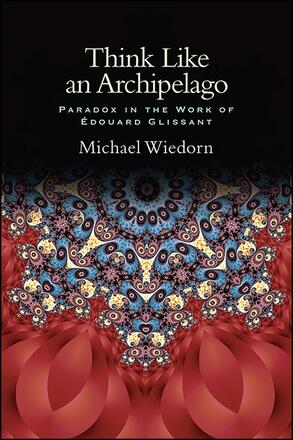
Think Like an Archipelago
Paradox in the Work of Edouard Glissant
Alternative formats available from:
A career-spanning assessment of Glissant’s work as a philosophical project.
Description
With a career spanning more than fifty years as a writer, scholar, and public intellectual, Édouard Glissant produced an astonishingly wide range of work, including poems, novels, essays, pamphlets, and theater. In Think Like an Archipelago, Michael Wiedorn offers a fresh interpretation of Glissant's work as a cohesive and explicitly philosophical project, paying particular attention to the last two decades of his career, which have received much less attention in the English-speaking world despite their remarkable productivity. Focusing his study on the idea of paradox, Wiedorn argues that it is fundamental to Caribbean culture and thought, and at the heart of Glissant's philosophy.
The question of difference has long played a central role in the literary and philosophical traditions of the West, however to think differently, Glissant suggests focusing elsewhere: on the post-plantation societies of the Caribbean, and the Americas more broadly. For Glissant, paradoxical lessons drawn from the natural and cultural realities of the Caribbean can point to new ways of thinking and being in the world: in other words, to the creation of what Glissant calls a "new category of literature," and in turn to the attainment of his utopian political vision. Thinking through such paradoxes, Wiedorn demonstrates, can offer new perspectives on the old questions of totality, alterity, teleology, and the potential of philosophy itself.
Michael Wiedorn is Assistant Professor of French at the Georgia Institute of Technology.
Reviews
"Michael Wiedorn has produced a most compelling account of the way Édouard Glissant thinks, or at least of the kind of thinking enabled, even solicited or enacted, by the Martinican author's writings. Wiedorn's book lives up admirably to the promise of its title, comprising as this does two very different—almost cognitively dissonant—projects. " — French Studies
"…if you are very immersed in debates about Glissant you will probably want to buy this well-written and structured book. It is particularly good on the specificities of Glissant's work, especially his later writing … I found Wiedorn's book an attentive and useful read, reflecting how Glissant's contribution continues to be interpreted in new and interesting ways. " — Jonathan Pugh, Island Studies Journal
"The book's use of the central concept of paradox is both original and convincing, and allows Wiedorn to reframe many of the issues surrounding Glissant's thought in a new and illuminating way. " — Celia Britton, author of Édouard Glissant and Postcolonial Theory: Strategies of Language and Resistance